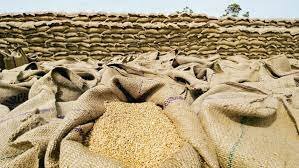India is set to advocate for the removal of trading entitlements that have historically favored developed countries and obstructed fair access to export markets for developing nations during the next World Trade Organization (WTO) interministerial meeting in Abu Dhabi.
In a move aimed at addressing global farm export imbalances, India will focus on eliminating the ‘additional Final Bound Total Aggregate Measurement of Support (FBTAMS) entitlements,’ which represent fixed allowances exceeding the ‘de minimis limits’ set by the WTO Agreement on Agriculture (AoA).
In trade terminology, ‘de minimis limits’ refer to the minimal level of domestic support allowed, even if it distorts global prices. These limits stand at 5% of production value for developed nations and 10% for developing countries. The disparities in these limits have sparked tensions, particularly when India had to defend its minimum support price (MSP) program amid global food supply concerns arising from the Ukraine war.
An informed source stated, “India believes any negotiations on domestic support need to first address existing asymmetries and imbalances in the WTO Agreement of Agriculture. Discussing disciplines on domestic support for India must begin with the removal of historical asymmetries in domestic support.”
India’s stance is to level the playing field by ending the FBTAMS entitlements enjoyed by certain members, which allow them to provide support beyond de minimis limits and extensive flexibility to concentrate product-specific support.
Nevertheless, resistance to this issue remains, and no formal negotiations have commenced within the WTO.
According to the Third World Network (TWN), a think tank specializing in global trade, developing countries should vigorously raise the issue of disciplining FBTAMS entitlements as they are “the primary source of inequity” in the AoA. TWN contends that permitting substantial additional entitlements for a select few countries creates significant advantages in policy space, exacerbating inequality among nations.
This imbalance also underpins other contentious topics on the negotiation table, including public stock holdings (PSH) and special safeguard mechanisms that developing countries have called to address.
India has faced persistent scrutiny from major foodgrain exporters such as the United States and Canada over its PSH program, which they claim is heavily subsidized, particularly for rice.
India has resorted to the ‘peace clause’ multiple times at the WTO due to breaches of the 10% subsidy ceiling on rice procurement. Indian officials argue that they primarily export premium quality rice, not the common paddy acquired under the MSP program.
At the WTO’s Committee on Agriculture, India disclosed that its 2019-20 rice production held a value of $46.07 billion, with subsidies amounting to $6.31 billion, surpassing the 10% limit.
India, in conjunction with a coalition of developing and African nations, has also presented a permanent solution for public stockholding of foodgrains. This proposal would grant them greater flexibility to offer increased farm support.
Queries directed to the commerce ministry’s spokesperson remained unanswered at the time of this report.
Summary:
- India plans to request the removal of entitlements in trading rules that have favored developed nations during the upcoming WTO meeting.
- India’s focus is on eliminating ‘additional Final Bound Total Aggregate Measurement of Support (FBTAMS) entitlements’ that exceed ‘de minimis limits’ established by the WTO Agreement on Agriculture.
- ‘De minimis limits’ are minimal levels of domestic support, set at 5% of production value for developed nations and 10% for developing countries.
- India contends that addressing domestic support negotiations should start with rectifying historical asymmetries.
- Developing nations argue that FBTAMS entitlements are a primary source of inequality in the AoA.
- India faces scrutiny over its public stock holding (PSH) program for rice at the WTO.
- India, along with other developing and African nations, has proposed a permanent solution for public stockholding of foodgrains to enhance farm support flexibility.


